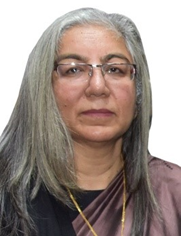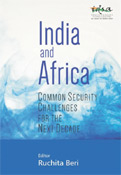IBSA Dialogue Forum: An Assessment
The formation of the India-Brazil-South Africa (IBSA) Dialogue Forum signals a new phase in South-South cooperation. This paper argues that the IBSA represents the partnership of three like-minded democratic countries, predominant in their respective regions, with some common agenda for the future. The paper argues that the IBSA partnership is still in its formative years and the best is yet to come. There is a need for intense consultation and communication to fructify the goals of IBSA.
- Published: September 2008











